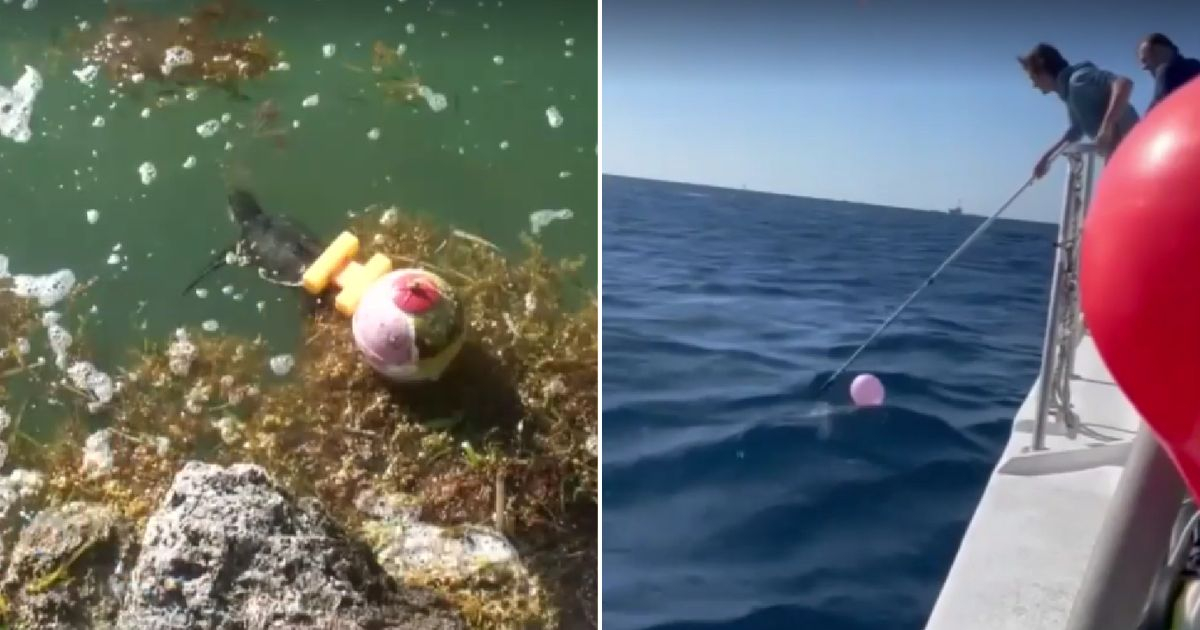
A bill prohibiting the intentional release of balloons, approved in the House of Representatives of Florida, now headed to the governor's desk Ron DeSantis and, if signed, it would come into force on July 1st.
The initiative aims to “stop microplastics and pollution in the seas,” said the The New York Times, citing a scientific investigation which notes that balloons that end up in the ocean “are 32 times more likely to kill seabirds than other types of plastic waste.”
Previously, there was a law that allowed the release of up to nine balloons per person outdoors within a 24-hour period. However, defenders of the new project argue that it did not meet the objective of reducing marine litter.
Hence the state representative Linda Chaney and the state senator Nick DiCeglie They promoted the project, which in turn was promoted by environmentalists.
Chaney, via email and quoted by the news portal, pointed out that the balloons “contribute to more microplastic pollution, which harms all living things, including human beings, and contaminates the air and drinking water.”
On this issue, he expressed his hope that the bill will achieve raise awareness about the problem of garbage, specifically including these festive objects.
Chaney mentioned that he first heard about the dangers of balloon waste in 2020. Then, during an investigation, he learned that a pregnant cow and her unborn calf died after ingesting a balloon while grazing.
However, it is common for aquatic animals to confuse them with jellyfish and die after ingesting them, he pointed out. The New York Times, warning that they are also a threat to terrestrial species.
The new legislation emphasizes that balloons are an environmental hazard, and intentionally releasing them is the same as littering, a non-criminal offense whose fine is $150.
Proponents of the new bill applaud that the ban extends to the release of biodegradable balloons.
However, the initiative does not limit their sale as party items, since, if the new legislation is approved, their use would be allowed indoors and outdoors, if they are properly insured.
The new rule exempts balloons released by any government agency or for scientific purposes approved by the government.
Hot air balloons that are recovered after being launched or those that are released by children six years old or younger would also be exempt.
According to The New York Times, the bill has found supporters, including the Florida Retailers Association and the Coalition for Responsible Celebrations.
In addition, he considered it a victory for environmentalists shackled by the Florida law known as the “ban on bans,” which prevents counties and municipalities from regulating plastic bags and single-use plastics.
Last April, the governor of Florida, Ron DeSantis, signed a bill authorizing chaplains to offer voluntary counseling in public and charter schools, although warned that satanists would not be accepted.
"Some have said that if you do a school chaplain program, that somehow you're going to have Satanists running through all of our schools," the governor said at a news conference, reported The Western Journal.
However, DeSantis urged Satanists not to show up at the Florida schools program, arguing that "that is not a religion. That does not qualify you to participate in this, "We'll use common sense, so you don't have to worry about that."
What do you think?
COMMENTFiled in: